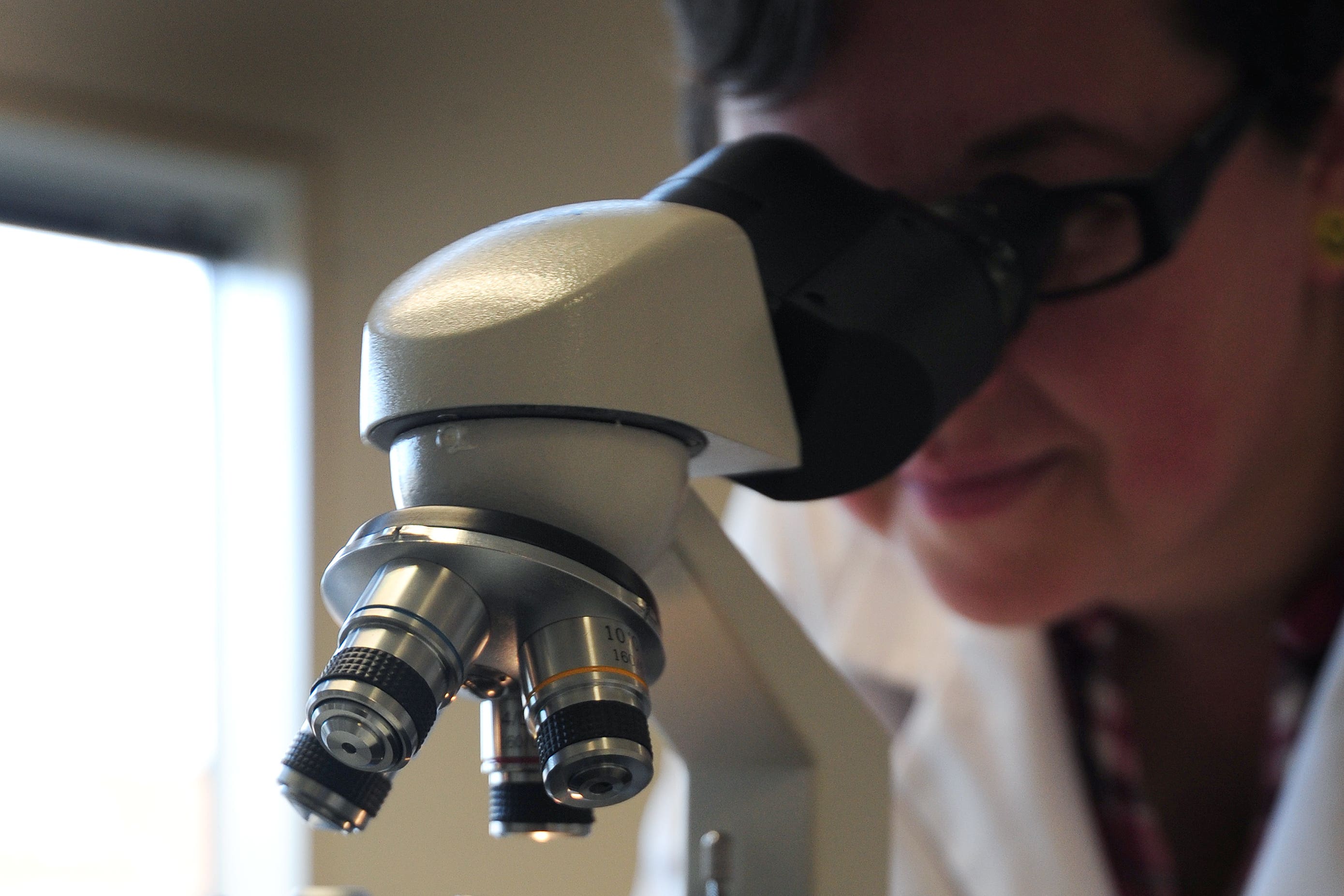A new ovarian cancer surveillance test is now being offered to women with an inherited risk of the disease, marking a significant development in care.
University College London Hospitals NHS Foundation Trust (UCLH) is the first in England to implement the screening service, with other hospitals expected to follow.
Women with BRCA1 or BRCA2 gene mutations face a significantly higher risk of developing both ovarian and breast cancer.
Current NHS guidelines recommend surgery to remove ovaries and fallopian tubes for these women. However, this can lead to early menopause for pre-menopausal individuals and prevents future childbearing.
Many women therefore choose to delay surgery, either to complete their families or to avoid early menopause.
The new test, called the risk of ovarian cancer algorithm (Roca), calculates a woman’s individual risk based on factors such as blood levels of the protein cancer antigen 125 (CA 125) over time, age, menopausal status, and the presence of BRCA1 or BRCA2 gene alterations.

Having the Roca blood test every four months has been shown to dramatically cut the chance of being diagnosed with late-stage ovarian cancer, which often has no or few symptoms.
Professor Adam Rosenthal, consultant gynaecologist at UCLH, said: “At the moment women face a very stark choice – preventive surgery with the fact that if you’re pre-menopausal, that means you can then no longer have children; and surgical menopause, which has detrimental effects and HRT is not guaranteed to make you feel the same way as you feel now.
“Not surprisingly, (women can) find it a really difficult decision as to what age to go through the surgery, because if they leave it too late, there is a risk they will develop ovarian cancer before they’ve had the surgery.
“There hasn’t so far been any kind of organised surveillance programme for them, there hasn’t been anything systematic that actually works until now.”
Prof Rosenthal said the test looks at the rate of CA 125 over time and “builds up a picture of what a woman’s normal fluctuations are, what is normal for the individual woman”.
He added: “What you do is you look for the rate of change of CA 125 after two or three tests and the computer algorithm has a pretty good idea as to what’s normal for her.
“That means that, for example, if you had a woman whose level was running around, say, between five and 10 consistently for a year or two, and then it ticked up to 15, and then it ticked up from 15 to 20, then that would be alarming, even though the level is well below 35, which is sort of what the lab would typically tell you is a normal result.
“So in other words, it’s picking up a rising level even within the normal range, which is saying ‘this is not normal for this woman’.
“What we do at that point is we arrange a scan and bring the patient in for a full examination and ask them lots of questions about their symptoms and so on.
“Then if the level continues to rise despite everything being normal, we will tell her ‘we think you may now have an ovarian cancer, and we would like to do exploratory surgery for you’.
“It means that we pick up cancers when they are smaller, when they aren’t yet causing symptoms, and that means we can remove those cancers with much less extensive surgery than would otherwise be necessary.”

Studies have shown that the Roca test halves the rate of women being diagnosed with ovarian cancer in the most advanced stages.
Prof Rosenthal said that doctors do want women to have preventative surgery “but obviously for young women, that’s a really tough choice and, at the moment, we have nothing we can offer them that has been shown to reduce the stage of diagnosis of ovarian cancer, until now.”
The NHS trust is working with the NHS North Central London Cancer Alliance (NCLCA) and GENinCode PLC to supply the test.
Prof Rosenthal said he hoped other NHS trusts around the country would begin offering the test to prevent women facing a postcode lottery of care.
One option is for women to have their blood samples sent to a central laboratory, which reduces the risk of variation in the results.
He said: “I would like to see the NHS commission a national programme where BRCA carriers get their blood tests taken locally, but it gets posted to a central laboratory.
“I want to see all women around the country offered this, I don’t want it just to be in our part of London.”
There are about 7,500 new ovarian cancer cases every year in the UK.
Women who carry a cancer-causing variant in the BRCA1 or BRCA2 gene have 44 per cent and 17 per cent respectively lifetime risk of ovarian cancer.
Hollywood actress Angelina Jolie raised awareness of BRCA mutations in 2013 when she had a double mastectomy to cut her chance of developing breast cancer.
Matthew Walls, chief executive of GENinCode Plc said the company was grateful for the “determination and focus” of teams working on the rollout, adding: “We look forward to extending the Roca test implementation to other NHS trusts in due course.”
Patient Carly Cayser, 45, from Essex, was diagnosed with breast cancer aged 40 and tested positive for BRCA 2 alterations.
She said: “The reason I’m delaying the surgery is because I’m concerned about going into premature menopause.
“By having the test every four months, so long as the results are normal, that will hopefully help my decision to delay surgery a little bit longer until I’m in the menopause.
“It’s hugely beneficial in that respect.”



